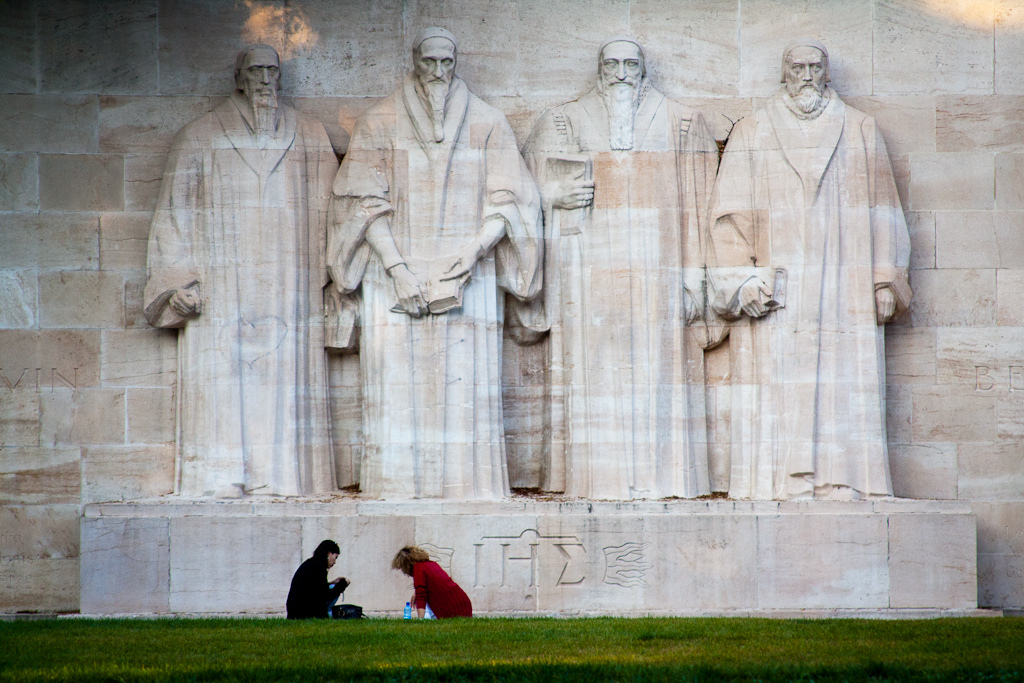Today marks the 499th anniversary of the day that would come to be seen as the spark that ignited a movement that purified the church in northern and western Europe and gave new energy to an already strong movement to return to the classical sources of Christian wisdom. I am referring, of course, to Reformation Day and to October 31, 1517, when Martin Luther nailed (we think) his 95 Theses to the church door in Wittenberg.
It’s a notable day in the church calendar and yet it is also one that arouses no small bit of controversy. The late medieval church had been marked by corruption, scandal, and abuse for several hundred years by the time Luther rose to prominence, but what Christians still to this day cannot agree on is what should have been done to deal with the decadence of the European church and particularly the hierarchy of the dominant ecclesial institution in Europe, the Roman Catholic Church.
The Catholics, The Radicals, and the Magisterial Reformers
What is interesting is not simply that we are still having these debates today, but that the three sides involved in the debates have not even changed all that much. In this post I want to draw out the enduring relevance of the Reformation and the debates that marked the first 50 years after Luther’s emergence by identifying three separate movements within the western church. All three are variations on Rod Dreher’s Benedict Option as all three are, much like their 16th century variants, trying to wrestle with difficult, complex questions in the aftermath of widespread failure on the part of the church.
Login to read more
Sign in or create a free account to access Subscriber-only content.
Topics:
